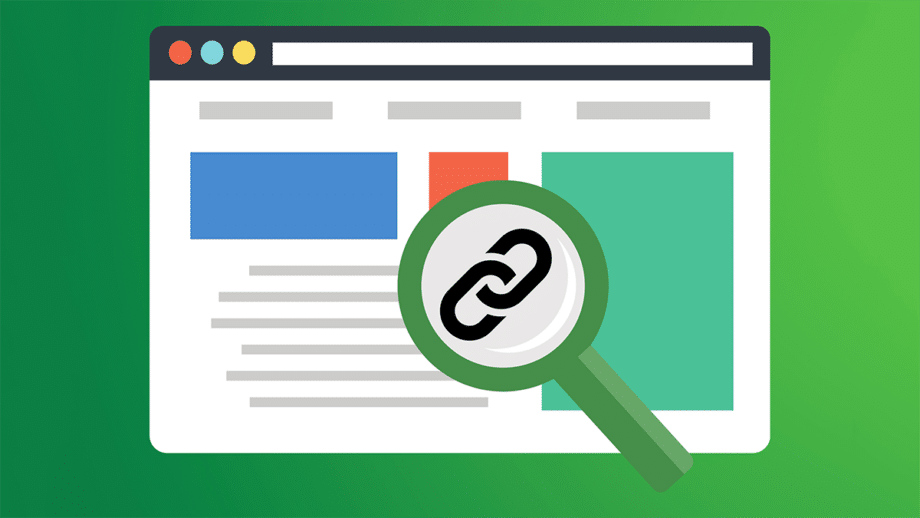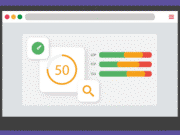Hey there, SEO adventurers! Ever felt like you’re spinning your wheels trying to climb the Google ladder, but somehow you keep slipping down? We get it. The search engine optimization (SEO) world is ever-changing and full of pitfalls that can trip up even the savviest digital marketers.
Here’s a truth bomb for ya: Tiny missteps in SEO can send your site spiraling from hero to zero in those search rankings faster than you can say “algorithm update”. But fear not – our handy guide is here to light the path away from those cringeworthy SEO blunders that could be holding you back.
In this post, we’ll unveil the common SEO mistakes waiting to pounce on your 2024 strategy. And guess what? With our tips and tricks tucked into your tool belt, you’ll be primed to sidestep these errors and watch your site soar.
Ready for some insider insights on steering clear of those sneaky SEO snares? Let’s dive in – because nobody likes being stuck on page two!
What is SEO?
SEO makes your website show up more on Google. It’s like a game where you help Google understand your site so it can tell others about it. You play by making your pages nice for both people and computers.
This way, when folks look for things online, your site can be one of the first they see.

To win at SEO, don’t just throw words into your site willy-nilly. Think about who might read your stuff and what they want to find. You tweak images, write clear titles, and make sure links take them to good places – all to create a smooth ride for visitors cruising through the web looking for answers!
Why Should You Avoid the Common SEO Mistakes?
Making common mistakes can cost your SEO a lot. Your website might get lost in search engine results pages if you mess up. This means people won’t find you online easily, and that’s not good for business.
Imagine putting in all the work but no one sees it because of simple errors like using the wrong keywords or having slow page loads.
You also don’t want to upset Google. They’re like the boss of search engines. If Google thinks your site is playing by the wrong rules, they can push your site way down where nobody looks.
Ouch! Plus, if your content feels old or copied from somewhere else, folks just won’t stay interested. They’ll leave and not come back, which tells Google your site isn’t helpful at all.
So let’s keep things neat and tidy! Fix those broken links, and make sure images load quickly and look great on phones too. Write stuff people actually want to read about and use some smart keywords without overdoing it – no one likes a show-off! Keep an eye on what works today ’cause what was cool yesterday might be taboo tomorrow in digital marketing land.
Top 9 Technical SEO Mistakes to Avoid

Oh, the technical side of SEO – it’s like a finicky old lock; turn the key just right, and presto, you’re in. But one wrong move and you’re stuck on your own doorstep. Dive in to discover those sneaky pitfalls that even seasoned pros sometimes miss!
1. Selecting an Unreliable Web Hosting
Picking a bad web host is like building a house on shaky ground. Sure, it might stand for now – but when the big storm hits? Trouble. Your website needs to be quick, up all the time, and safe from attacks.
“An unreliable host will fail you exactly when you need your site to shine during traffic spikes or nasty DDoS attacks.”
Honest moment here – speed wins races both on tracks and in SEO. A slow-loading page can lose visitors really fast, and that’s not good for business or search engine rankings. Think about it: When was the last time you hung around for a page that took forever to show up? That’s right… probably never! So let’s agree on this; solid web hosting plays a huge in keeping your site zooming along and keeping those clicks coming.
2. Not Optimizing Your Website Design for Mobile Devices
Mobile phones are everywhere. People use them all the time to browse the internet. So, if your website looks bad on a phone screen, you’re in trouble! It’s gotta be easy for thumbs to click and see everything without zooming in.
“Make a mobile-friendly website, or folks will leave it quickly.”
Let’s get real – no one likes waiting for slow pages to load on their phone. Your images and content must fit nicely on small screens too. Think about how you use your own phone; that’s how others want to use your site! Keep it smooth and fast, keep people happy, and watch your search engine ranking climb up!
3. Not Making the Website Load Fast
Your site might look cool, but if it crawls like a snail, visitors will bounce faster than a rabbit on a trampoline. Speed is king! Fast-loading pages can skyrocket to the top of SERPs while slow pokes lag behind.
Trust me – nobody likes staring at loading icons, and Google doesn’t either.
Make sure your files are light; I’m talking about images and scripts. Choose formats like WebP for pictures – they keep them looking sharp without the weight. Popups should pop, not drag down your speed.
Keep everything zippy for users and search engines alike – it’s crucial for that SEO gold!

4. Forgetting to Add SSL/HTTPS
Having a secure website is like giving your visitors a safety promise. Think of SSL/HTTPS as the padlock on the front door of your online home. It’s what makes people trust that their info is safe with you.
If you skip adding this, search engines might not be too happy with you either. They take security seriously and so should you.
Browsers will show a warning if a site isn’t secure – no one likes warnings, right? Plus, it can scare off folks coming to your site and hurt how high you climb in search engine rankings.
Trust me; it’s much easier to put that SSL certificate in place than trying to win back browsers who bounced away from those scary “not secure” alerts!
5. Not Fixing Page Indexing and Crawlability Issues
Search engines need to find and understand your pages. If they can’t, your site won’t appear in search results as well as it should. That’s where fixing page indexing and crawlability issues come in.
Make sure you have a clean robots.txt file so search engines know what to look at. Use XML sitemaps to tell them about all your important pages. Check for mistakes like Meta Tags that say NOINDEX or wrong instructions in the robots.txt file that could keep search bots away.
If your website is slow, this can also cause problems for crawling. Pages may time out before the search engine finishes looking at them. So, work on making every page fast to load – because speed matters! Keep things clear and working well so that when Google comes knocking, it can easily walk through everything you’ve got to offer.
And remember those technical SEO fixes aren’t just good for users; it’s a plus point with most search algorithms too!
6. Not Structuring the URLs Correctly for Better SEO
URLs are like road signs for the internet, pointing Google and visitors to the right page on your site. Oops! If they’re messy or confusing, folks might not find their way. Keep them clean and straightforward.
You’ll want to use words that tell what’s on the page. That way, search engines know how to list it and people get excited to click.
Think about using dashes instead of other symbols; they make URLs easier for humans and search engines to read. Plus, including keywords can give you a boost in rankings – just don’t overdo it! And hey, steer clear of long strings of numbers or letters nobody understands; they won’t do you any favors in SERPs.

7. Adding Faulty URL Redirects
URL redirects can be super tricky. You might think you’re helping people find the right page, but if you mess up, it could do more harm than good. Let’s say you change a page on your site – you’ve got to make sure that the old link doesn’t leave folks staring at an error message! Redirect them to the new spot smoothly or else Google might get confused and not show your page in search results.
If bad redirects send users to the wrong place, they’ll bounce off real quick. This tells search engines like Google that something isn’t right with your site. So double-check those redirects and keep them clean.
A correct redirect is like giving someone great directions; it gets them exactly where they want to go without any fuss!
8. Not Optimizing the Images
Big pictures can make your site slow to load. That’s bad for keeping people around and bad for SEO too. You’ve got to shrink your images down so they don’t take forever to show up.
Use the right file type – like JPEG or PNG – to keep quality high but file size low. Keep those images in line, and you’ll keep both visitors and search engines happy!
9. Making Website Navigation and Internal Linking Poorly
Oops! Your site’s a maze, and folks can’t find their way. Imagine this: Someone steps into your website excited to explore what you offer, but they get lost. They click on a link thinking it’ll take them to the treasure they’re after – boom – the page is dead-ended or leads somewhere unexpected.
Frustration? Sky-high! You’ve got to lay out clear paths with your internal links so visitors glide from page to page, hungry for more of your content.
Now picture each link as a helpful guide saying “This way!” It should be super easy for people to jump around topics they care about without scratching their heads. And here’s the kicker: search engines love it too.
A slick network of internal connections boosts your SEO game by showing Google just how each page rings together in perfect harmony. So don’t let sloppy links send your guests down the rabbit hole; make every click count and watch those rankings climb!
Top 5 SEO Mistakes Related to Website Content

When it comes to the heart and soul of your online presence – CONTENT – it’s downright pivotal that you steer clear of missteps that can derail your SEO efforts. Imagine you’re serving up a delectable dish; you wouldn’t want to spoil the broth, right? Dodging these common content faux pas is like making sure every ingredient compliments the next, ensuring that your website not only stands out but also resonates deeply with those ravenous search engines – and let’s face it, they’re always hungry for more.
1. Not Updating or Removing Outdated and Duplicate Content
Old stuff on your site is like old bread in a grocery store – no one wants it, and it won’t sell! Keep your content fresh and toss out the duplicates. Search engines are smart; they know when you’re serving the same thing twice, and they don’t like it.
“Let’s cut down on confusion for Google by making sure every page is unique.”
Think of a regular SEO audit as your website’s check-up. It spots the rotten bits so you can clean up any mess before search engines turn their noses up at your site. Outdated or copied pages? That’s just asking for trouble.
Zip them up or hit delete – whatever it takes to keep things tidy! Keeping everything current keeps visitors happy and helps you stay friends with Google’s ever-changing rules.
2. Ignoring to Write High-Quality Content that Your Readers Want to Read
Okay, let’s talk real talk – high-quality content is a big deal. You’ve got to give the people what they want! Imagine your readers clicking through, hungry for some awesome reads.
Give them blah and donuts? Nope, you gotta serve up that gourmet steak – that juicy info they’re after. Trust me, it’s not just about throwing words on a page; it’s about crafting something tasty that satisfies their hunger for knowledge.
So picture this: Your job as an SEO pro isn’t just playing with keywords or meta descriptions; it’s more like being a chef in the kitchen of Google SERP (search engine results pages).
You whip up content so good, people can’t help but come back for seconds – or better yet, share it with their buddies. That’s right! We’re talking organic search gold here. Content optimization is the name of the game and quality is your secret sauce.
Don’t skimp on flavor; make every word count!

3. Publishing Plagiarized Non-Original Content
Publishing content that isn’t yours is a huge no-no in SEO. Think of it this way – when you copy someone else’s work, search engines like Google are quick to notice. They’re smart and know when something’s been stolen.
This bad move can knock your site down the ranks, or even worse, get you kicked out of the search results altogether.
So here’s the deal: always create fresh and unique stuff for your audience. It’s worth the effort! Plus, getting caught with copied content makes visitors trust you less. Who wants that? Stick to being original; it pays off with better rankings and happier readers who keep coming back for more.
4. Creating Content Without Following Google’s E-E-A-T Guidelines
Google’s E-E-A-T standards are like a secret recipe for making your content tasty to search engines. They love it when you show Experience, Expertise, Authoritativeness, and Trustworthiness. Let’s say you write about how to stay healthy.
You need to know your stuff, look legit, and be someone people can count on for good info. If you skip this step – ouch! Your site might not shine in Google’s eyes.
Imagine writing without caring about E-E-A-T – it’s like driving at night with no headlights! Sure, bad SEO moves can land your website in hot water; ignoring these guidelines is asking for trouble.
Your site could end up lost where no one can find it. Keep things straight by showing off what you know best and keeping that content as real as grandma’s apple pie – no faking or shady shortcuts here!
5. Not Using the Schema Markup
Schema markup is like a secret code for search engines. It helps them understand what your web pages are about. Without it, you’re missing out on a big chance to make your site shine in search results.
“Think of Schema as the language that tells search engines the story of your website’s content – and who doesn’t want their story told right?”
If you don’t add this special code, search engines might get confused. They could miss important details that help people find what they need fast. When others use schema and you don’t guess who looks better? Yep, not you! So dive in and give those web pages some good old schema love; trust me, it’ll help folks see just how awesome your content really is!
Top 5 On-page SEO Mistakes to Avoid

Oh boy, on-page SEO can be a real doozy if you flub it up! It’s like the secret sauce to making your site delicious for Google – miss an ingredient, and your rankings might just flop. Dive in deeper and we’ll dish out the no-nos that could leave your website feeling kind of… meh.
1. Not Adding ALT Texts to Images
Pictures on your website matter a lot. They can speak a thousand words, right? But search engines can’t see them like we do. That’s where alt texts come into play. These little descriptions tell search engines what’s in the picture and why it’s important for the page.
Imagine this: A person who can’t see well is using a screen reader to browse your site. Without alt text, they won’t know what images are there or what they show. By adding alt tags, you’re not just boosting SEO; you’re making your site better for everyone.
Now think about Google doing its thing – crawling through your pages, trying to figure out how to rank them. If you skip on giving all those images some good alt text love, Google might miss out on understanding all that great content you have – and down go your rankings!
So keep it simple: every image should have an alt tag. It’s one small step for you but one giant leap for your on-page optimization! Just describe each photo briefly and clearly, keeping those keywords in mind without going overboard – nobody likes keyword stuffing anyway.
2. Not Fixing Broken Links
Hey there SEO pros! Broken links are like roadblocks on your website’s path to success. They trip up both visitors and search engines, messing with your site’s flow.
Search engines hit a wall when they find broken links. This makes them think your site isn’t well-maintained, which can drop your rankings.
Folks visiting your site get frustrated when links don’t work. They might just leave and not come back. Ouch!
Your SEO strategy takes a hit because broken links mess with how pages link together. It’s like having a puzzle with missing pieces. Checking the “Issues” tab during an SEO audit can show you where those sneaky broken images hide. Fixing these busted links helps search engine bots glide through your site smoothly, which is exactly what you want.
Updating evergreen content? Make sure all outgoing links are still pointing to live pages; nobody likes landing on a 404 page. Remember that fixing broken links improves click-through rates. When folks trust your links to work, they click more often.

3. Not Properly Optimizing the Meta Title and Meta Description
Think of your Meta Description and Meta Title tag as your website’s handshake with search engines; it needs to be firm and confident. If you skip adding the right keywords, you’re missing out big time.
Search engines use these bits to understand what your page is about. And folks searching online – they glance at these too – so make them count!
Now, stuffing those tags full of keywords like a Thanksgiving turkey? Don’t do it! It’s not just a bad look – it can harm your rankings. Instead, write clear and inviting meta titles and descriptions that tell both Google and potential visitors exactly what they’ll find on your page.
Keep it relevant without going overboard. Remember, this is about making connections that count for users first and search engines second!
4. Adding External Links Incorrectly
Putting external links on your page can mess things up if you don’t do it right. You’ve got to be choosy, picking only those that are top-notch and make sense for your content. Jamming in links just anywhere won’t cut it.
They should fit snugly like a puzzle piece, backing up what you say or giving readers extra info they might want.
Let’s talk about these links more. Adding ones that aren’t any good can drag your site down in search engine eyes. Yup, choosing bad or off-topic links is a sure way to get a frown from Google and pals.
Oh, and overdoing it with too many links? Also not cool – keep them relevant and helpful so folks trust what you’re putting out there!
5. Not Using Header Tags Correctly
Header tags are like signs on a road. They tell Google and people what is important on your webpage. You should use just one H1 tag to show the main idea of your page. Then, use H2 and H3 tags for other big points you talk about.
This makes it easy for everyone to follow along. Think of H1 as the title of a book and H2s and H3s as chapter titles. If you mix them up or don’t use them, Google might get confused. And when Google’s confused, your site won’t show up high in search results where people can find it easily.
So make sure those header tags help guide both readers and search engines through your content like breadcrumbs!
Top 4 Off-page SEO Mistakes to Avoid

Oh boy, if you thought tripping up on the technical stuff was bad, just wait till we dive into off-page SEO blunders! You’ve got to roll up your sleeves for this one because ignoring the powerhouse that is strategic off-page optimization? That’s like skipping leg day at the gym – sure, no one might notice at first glance, but sooner or later, it’s gonna be pretty darn obvious.
Think of it as your website’s rep – gotta keep it squeaky clean and well-connected. Now let’s get into how not to drop the ball when you’re playing in Google’s backyard.
1. Not Utilizing Social Media for SEO
Social media isn’t just for cute cat videos and food pics – it’s a powerhouse for boosting your site’s visibility. Think you can skip it? Not a chance! If you’re not sharing content or engaging with followers on platforms like Facebook, Twitter, or LinkedIn, you’re missing out big time. Your Google search rankings could take a dive faster than a lead balloon.
Let us clue you in on something: social media signals are super important. They tell search engines that people are chattering about your website. And when folks start talking, search engines listen up and might bump up your spot in SERPs (search engine results pages).
“Use those likes, shares, and comments to fuel your SEO strategy; it’ll thank you later with more clicks and conversions!”
2. Not Doing Site Audits Regularly to Fix Issues
Site audits are a must-do for SEO pros. They find and fix problems that could hurt your site’s ranking. Catch sneaky errors before they cause trouble. Site audits can spot hidden issues, like broken links or old, forgotten pages.
Keep up with Google’s changes; they’re always updating their rules! Regular checks make sure your site plays by the latest game plan. Avoid missing out on better search results. Audits can reveal simple fixes that might boost your web traffic big time. Stay on top of your backlink health. A good look at your link profile during an audit keeps those risky links away.
Find content that’s just not working anymore. Don’t let outdated or duplicate posts drag you down – audits will show you what to refresh or remove. Make sure all the hard work pays off. With regular audits, you’ll know your SEO strategies are actually doing their job right.

3. Not Using Google Analytics, Google Search Console, and Bing Webmaster Tools on Your Website
SEO wizards, listen up! Ignoring FREE SEO Tools like Bing Webmaster Tools, Google Analytics, and Google Search Console is like flying blind. Not cool. Here’s why you need these tools:
- Track your performance: They show how well your site’s doing. You see the number of visitors, where they come from, and what they do on your site.
- Identify errors: These tools spot problems like broken links or pages not loading right. Fixing these means better SEO scores.
- Get valuable insights: Learn what keywords bring folks to your site and how well you’re ranking.
- Stay ahead of SEO issues: Regular website audits with these tools catch small problems before they turn into big messes.
- Make informed decisions: Without data from these tools, making smart SEO choices gets tough.
- Watch your rankings: Keeping an eye on search engine rankings can help tweak strategies for better results.
- Improve user experience: Data tells you if people like your site and stick around. Happy users often mean higher rankings.
There are plenty of other tools are also available, both free and premium. You should think about using any one of them as per your needs and budget.
4. Not Submitting XML Sitemaps to Webmaster Tools
Okay, SEO pros, we’ve got to talk about XML sitemaps. Not sending them to webmaster tools is like keeping your store’s map hidden from shoppers – they can’t find what they need! Let’s dive straight into why this is super important.
- Sitemaps guide search engines through your site. Think of them as a treasure map that leads Google and Bing to your best content.
- They speed up the indexing process. New pages on your site get noticed faster when you’ve shared a sitemap with the big search engine players.
- You can spot problems early on by submitting a sitemap. It helps you find out if certain pages are not being crawled or indexed.
- Sitemaps help with large websites. If your site is massive, a sitemap acts like signs in a mall, so search engines don’t miss out on any spots.
- They’re vital for newer websites with few external links. Without those links, search engines might not discover all of your pages without a little extra help from a sitemap.
- Webmaster tools love complete pictures; an XML sitemap gives them just that – an up-to-date layout of your entire website.
- Using Google Search Console and Bing Webmaster Tools means you’re sticking to SEO best practices for sitemaps – this could win you some points with these tools!
- A submitted sitemap can improve your website structure insights. You’ll know which parts of your site are getting attention and which parts are not.
Top 5 SEO Mistakes Related to Keyword Research and Optimization

Dipping our toes into the keyword pool can be tricky, and let’s face it – a lot of us end up doing a belly flop; so avoid those all-too-common SEO blunders that tank your ranking faster than you can say “keyword research gone wrong” – join me in unraveling the mysteries behind keywords done right.
1. Doing Keyword Research Poorly
Let’s face it, good keyword research is like a treasure map for SEO. If you skip steps or rush through it, you’re missing out big time. Picture this: you start writing without really knowing what words people use when they search.
That’s like trying to win a game without knowing the rules – not gonna happen! And ignoring user intent? Even worse. You might get folks to visit your site, but they’ll bounce right off if the content doesn’t match what they’re looking for.
Now, think about those keywords that are super hard to rank for because everyone and their dog are after them. Going for these can be like climbing a mountain in flip-flops – tough and kinda silly.
On the flip side, picking keywords no one ever types into Google is just shouting into the void; nobody will hear you. So balance is key here – finding that sweet spot of words with enough searches but not too much competition could mean hitting gold for organic traffic growth on your blog or website.
Keep an eye on this stuff – it’s important!
2. Not Keeping an Eye on Your Competitor’s Ranking Keywords
You might be missing out big time if you’re not tracking what keywords your competitors are ranking for. Think about it – they could have found some golden nuggets that draw in tons of visitors, and here you are, none the wiser.
Staying in the know gives you a chance to spot trends and figure out how to beat them at their own game. Sure, digging into another site’s keyword success can feel like snooping around, but it’s all fair in love and SEO!
Imagine having a secret map to hidden treasure; that’s what you get by keeping tabs on competitors’ keywords. You learn from their wins and maybe even their goofs – saving yourself from making the same slip-ups.
So keep an eye on those rankings! Because if they suddenly climb up Google’s ladder with some clever new terms, you’ll want to understand why – and how your website can ride along that wave of success too.

3. Stuffing Keywords into Content
Putting too many keywords in your content can hurt your SEO. It’s like filling a bag with so much stuff it bursts.
Years ago, people did this to trick search engines and get higher ranks. Now, Google is smart and doesn’t fall for that trick anymore. If you pack your words in like sardines, Google might even penalize your site.
Keep it natural when using keywords – use them where they make sense. Think about how you talk; you don’t repeat the same word over and over again. Your website should read the same way: easy and clear! Let’s not cram our sentences with keywords just because we think it will help us rank better – it won’t, I promise!
4. Not Fixing Keyword Cannibalization Issue
Have pages that fight over the same keywords? That’s keyword cannibalization, and it’s not good. It can really mess with your site’s ranking power. Picture this: instead of one strong page pulling all the weight and climbing up in rankings, you’ve got a few weaker ones struggling and confusing search engines about which one to show.
You want to avoid giving search engines a hard time. Here’s a quick tip – try keyword clustering! Group similar keywords together so each page targets a specific cluster. This way, every page gets its chance to shine for different searches without stepping on each other’s toes.
Plus, you dodge those nasty ranking penalties and keep your website looking sharp in the eyes of Google. Remember how important it is to fix these issues fast? Well, now’s as good a time as any!
5. Targeting Too Difficult Keywords or Targeting No-Traffic Keywords
Going after keywords that are super hard to rank for? Not the best move. You’re up against giants and your site might not stand a chance. It’s like being a new fish in a pond full of sharks – you could get lost or eaten!
Instead, find those sweet spot keywords. The ones that have enough people searching but aren’t impossible to compete for.
And hey, don’t swing the opposite way and pick keywords no one’s typing into search engines. That’s like putting up a billboard in an empty field – nobody’s there to see it! Dig into some research.
Look at what folks are actually looking for but also make sure you’ve got a fighting chance to get seen. Keep it balanced, right? Make sure your keywords match what people want, without throwing yourself into the ring with heavyweight champs before you’re ready.
Top 5 SEO Mistakes Related to Link Building

In the wild world of link building, you can easily stumble into a tangled web of shady tactics – but don’t fret, I’m here to shine a light on common blunders that could tank your search engine cred (hint: buying links is so last decade!).
Stick around ’cause we’re about to navigate the minefield together and keep your site’s reputation sparkling clean!
1. Building Toxic and Low-Quality Backlinks
Building toxic and low-quality backlinks is like inviting trouble to your doorstep. Sure, it might seem easy or quick at first – you find a bunch of websites willing to link back to your page for little or no cost.
But watch out! Google’s got an eye for these shady links, and trust me, you don’t want to get on their bad side. They can hit your site with penalties that drop your search ranking faster than you can say “SEO disaster”.
You need good friends in the world of SEO – sites that are respected and have authority. Imagine linking arms with the top players in your niche; that’s how you win this game. Try to mix with the wrong crowd – those spammy sites selling cheap links – and boom! Your site’s rep takes a dive.
“It’s simple: pick quality over quantity every time when it comes to your link-building strategy.”
2. Not Building Relevant Backlinks from the Same Niche
Okay, let’s talk about getting links from other websites in your field. Imagine you’ve got a basketball blog, but all your backlinks come from cooking sites. It just doesn’t make sense, right? Search engines like Google might scratch their heads and think your site isn’t really about basketball after all.
You want links from other sports or basketball sites because that tells Google, “Hey, this page is a slam dunk for B-ball fans!” Think of it as getting a thumbs-up from the cool kids at school – it makes others notice you more.
When you’re not linking up with similar websites, you miss out on showing how cool and related to the topic you are. Getting those niche-relevant backlinks is super important because they help boost your website’s trustworthiness.
Plus, they can drive more people who love what you’re talking about straight to your digital doorstep! Instead of hanging out where nobody knows anything about dribbling or three-pointers, join forces with those who speak hoop language fluently – it’ll be a game-changer for your search engine ranking and will have fellow B-ball lovers flooding into your inbox before you know it.

3. Not Trying to Get Backlinks from High-Authority Sites
Getting backlinks from top-notch sites is like getting a high-five from the cool kids in school. It tells Google and other search engines that you’re hanging out with the best crowd.
These quality backlinks can shoot your page up the search engine ranking fast! But hey, it’s not just about any link; think of each one as a vote for your site’s trustworthiness. So, if you aren’t reaching out to these authority figures in your niche, you’re missing out big time.
Sure, scoring links from these big players can be tough – they don’t just hand them out to anyone. Yet, avoiding this challenge means you won’t taste victory in SEO land. You might even end up with too many low-quality backlinks which could get you into hot water with Google’s algorithm (and nobody wants that).
4. Not Building Internal Links
Oh boy, skipping internal links is like forgetting to put cheese on a pizza – it just doesn’t make the same impact. Internal linking ties your pages together and guides users through your website.
It’s a big deal for SEO too! By sprinkling those crucial internal links, you’re telling search engines which pages are important and how they connect.
Imagine this: every link is like a road that leads Google around your site. No roads? Well, Google might miss some cool spots. And we can’t have that, right? So go ahead, and link up those relevant content or services on your site! It boosts user experience and helps search engine ranking climb up where it belongs.
Plus, when done right, using juicy keywords as anchor texts in these links gives an extra nudge to relevancy – talk about hitting two birds with one stone! Keep things natural though; nobody likes being shoved down a path they don’t want to go.
5. Buying or Selling Backlinks for SEO
Buying or selling backlinks may seem like a quick way to boost your search engine ranking, but it’s risky business. Search engines are on the lookout for this kind of trick. They can slap your site with a penalty faster than you can say “SEO mistake.” It’s better to focus on earning backlinks through quality content and legit networking.
Let’s be real: we all want that top spot in Google, right? But taking shortcuts by trading cash for links ain’t going to cut it. Prioritize getting those high-quality, relevant links naturally. That’ll keep both you and the search engines smiling.
Top 3 Local SEO Mistakes to Avoid

When it comes to local SEO, even the tiniest of slip-ups – like overlooking the power of a Google My Business listing or not giving love to those less-than-stellar reviews – can mean waving goodbye to that coveted spot on the local search carousel; don’t let your spot get snatched away – dive in and discover how you can keep your local SEO game strong!
1. Not Listing Your Business to Local Directories like GMB, Yelp, etc.
Getting your business on local directories is a big deal. Think of Google My Business (GMB) and Yelp as the online yellow pages. Your customers are out there, searching for what they need — if you’re not listed, how will they find you? It’s simple; they won’t! So make sure your shop pops up when someone nearby is looking for what you offer.
Also, don’t just throw your name in there and call it a day. Use those categories wisely – they’re like secret keywords that boost your local search engine ranking. Be smart about this step; it’s easy but mighty important for getting seen in the neighborhood!
2. Not Entertaining Negative Reviews Properly
Look, negative reviews can sting. But ignoring them? Big mistake. They’re not just a blow to your ego – they hurt your local SEO and online rep too. You’ve got to face those bad comments head-on.
“Respond, fix the issue, and show you care. It’s all about keeping that online image shiny and trustworthy.”
Think of it this way: each unhappy customer is a chance to get better! Turn lemons into lemonade with some damage control magic – address issues promptly and politely for the win. Your search engine ranking will thank you, and so will folks looking up your biz!
3. Not Adding Location-Specific Pages on Your Website
So, you’ve got a website but no location-specific pages, huh? Big mistake. Local folks are looking for businesses just like yours. If they can’t find you, that’s traffic and leads lost.
Local SEO isn’t just about sprinkling local keywords here and there; it’s about crafting unique pages that shout out “Hey, we’re right here in your neighborhood!”.
Got more than one spot? Even better! Make a page for each location with all the good stuff on it – address, hours, what makes this place special. Trust me; Google eats this up for breakfast.
It helps put you on the map – literally! Maps drive customers to your doorstep as much as search engine ranking does when done well. So go ahead – get those location pages up and watch locals flock to you online and offline!
Conclusion

Alright, let’s keep SEO simple. Fix those small mistakes and watch your site climb up the search ranks. Remember mobiles – everyone’s on them, so make your site look good there too.
Use smart keywords, but don’t cram them in! Build solid links with other sites; it really helps. Lastly, give some love to your local fans – they matter a ton for your business’s spot on Google Maps.
Now go ahead, tweak that website, and get found! Make your mark in 2024; begin now and build a solid content marketing and digital marketing strategy!





